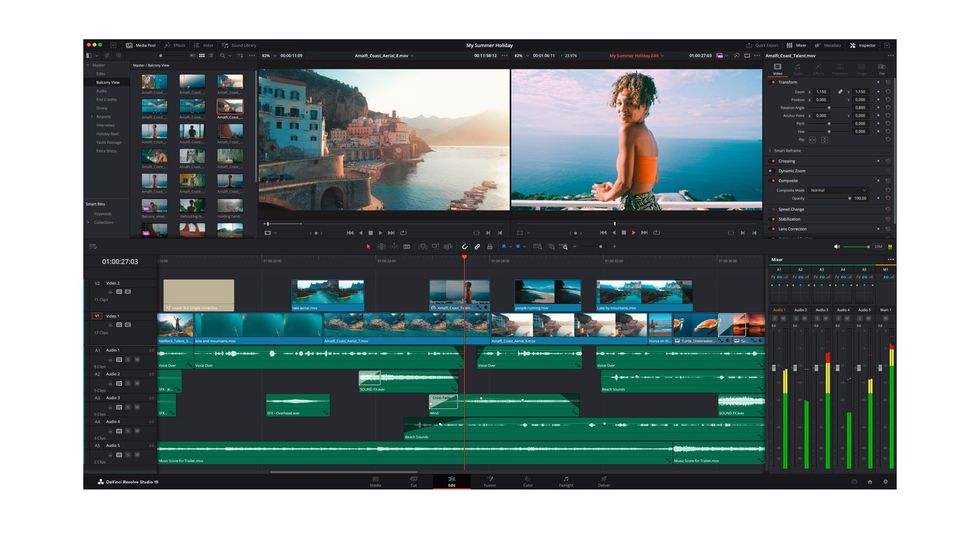What Are the Real Mechanics of Getting Words on the Page for Your Script?
Top screenwriters offer advice on character development and just getting to work.
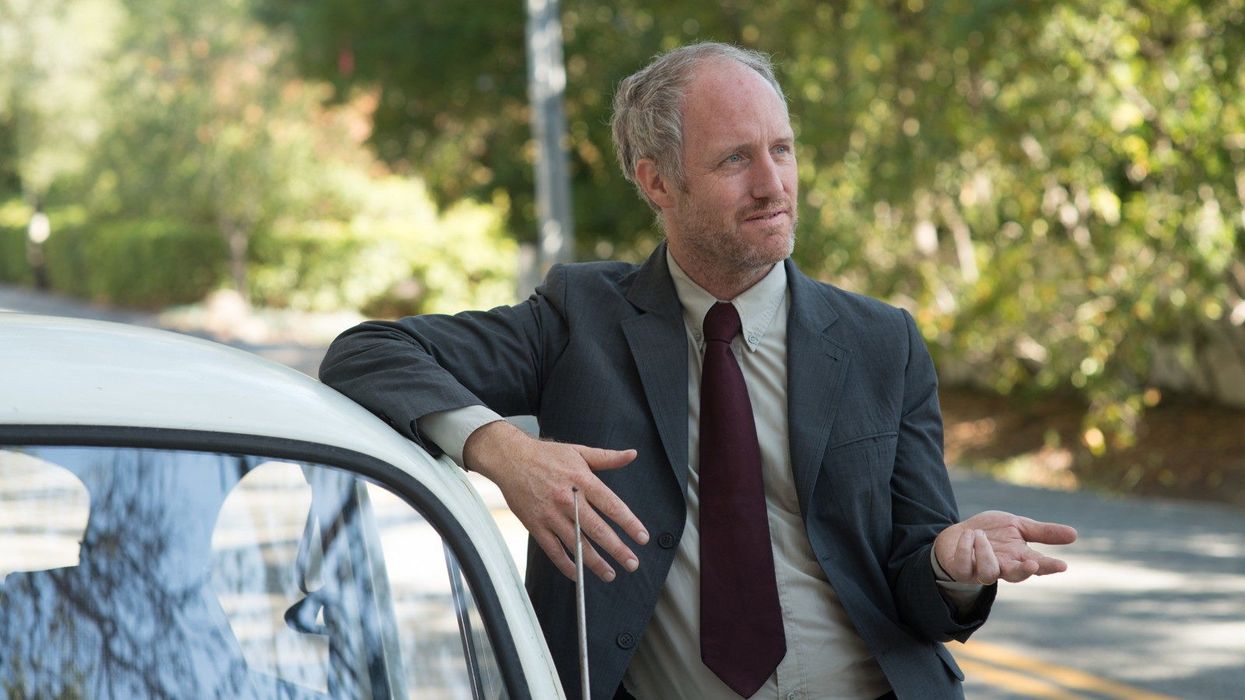
Michael Winship, president of the Writers Guild of America, East guided a fun, lively talk on screenwriting at the New York Film Festival, featuring some of the highest profile American writers who have had a history with the event. Panelists Jean-Christophe Castelli, Mike Mills and Rebecca Miller discussed the art of character development and the way the personal intersects with their fiction.
Castelli worked for years as writer James Schamus' assistant, helping him research the films he made with director Ang Lee, including Sense & Sensibility and The Ice Storm. Their collaboration advanced significantly when Lee directed Castelli's script for his new movie, Billy Lynn's Long Halftime Walk, his first ever feature script credit. Billy Lynn, a surprise NYFF screening, follows a 19-year-old Iraq War vet who is made to look like the face of American heroism while he privately battles the demons he brought home with him after combat.
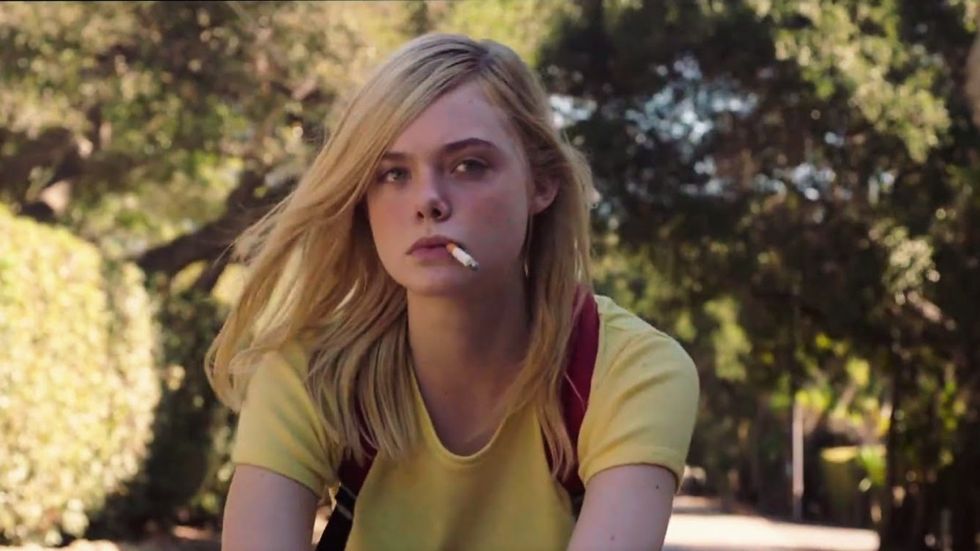
Mike Mills was a Berkeley-born skater long before he became one of the most vital voices in American film. His 2007 feature debut Thumbsucker showed he had a way with compositions and could get stunning work out of any performer. Mills really hit his stride with 2011's Beginners about a man realizing, after their deaths, that he never really knew his parents. His latest is 20th Century Women, the centerpiece of this year's NYFF. It stars Annette Bening as a single mom in 1979 who reaches out to two young women for help raising her adolescent son when she thinks she's run out of ways to reach him.
Rebecca Miller seems destined to have become a writer/director, as she's the daughter of the legendary American playwright Arthur Miller. She's been expressing her beautifully complicated feelings about her family life one movie at a time, pulling inspiration from her father and mother (Inge Morath, who Arthur Miller met on the set of The Misfits) in the creation of her films The Ballad of Jack & Rose and Maggie's Plan, which played NYFF last year.
"I draw my characters and I follow them around and I keep writing and writing and writing..." -Rebecca Miller
Characters come first
Miller says her writing process always starts with her characters: "What I do is I start spinning characters. I draw my characters and I follow them around and I keep writing and writing and writing and gradually they start to accrue some sort of destiny and then I start to think ok, what do I want my plot to be? It happens to me that people (characters) show up and you have to deal with them. A lot of the extra characters in Maggie's Plan came from people that I knew in college. I very much modeled these characters on people that I know."
Mills sympathized, saying his last two films came from very personal places. "Beginners was based very much on my real father and sort of a quasi me, and his predicament of coming out of the closet when he was 75 after my mom passed away and all that that brought into our world." 20th Century Women, however, was based on his mom. Mills described, "She was born in the 20s, depression-era kid, wanted to be a pilot during World War II. If you wanna imagine what she was like, imagine Bogart and Amelia Earheart put together. But then she's stuck in the 70s trying to raise me and she's like a fish out of water, historically speaking. A proto-feminist, very strong, very unlikely, soft, butch, straight woman trying to get through life. [The film] started with her and her worldview and what was it like to be her then, trying to deal with me." He went on to explain that Greta Gerwig's character was based partially on his sister's experiences a young student in New York, and her own reckoning with sexuality, womanhood, and eventually, illness. He said, "Those two women were sort of the center for me...Plot came last as a way to hold these portraits together."
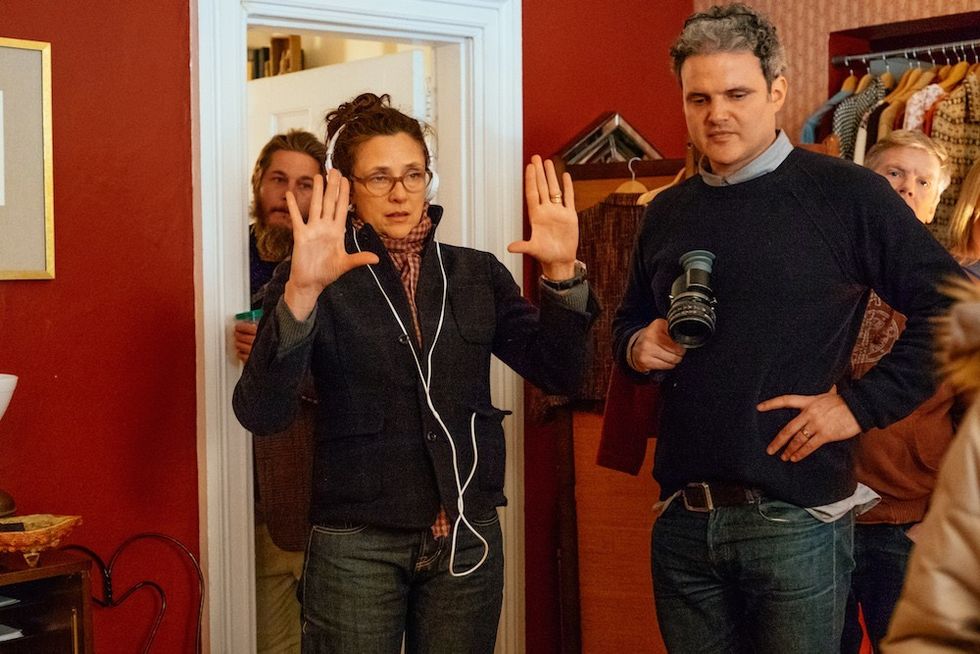
For Castelli, the challenge of adapting Ben Fountain's book, upon which his script was based "was that the character of Billy Lynn is a filter through which everything comes. There's a kind of double quality to him in the novel. He's naive and very open, but starting to become aware of the world...but at the same time he's a little bit of a mouthpiece for the author. Some of his observations...are more sophisticated and linguistically rich than you would expect from someone who is basically a teenage fuck-up in Texas." That means that Castelli had to work on separating the author's voice from that of the character, while bringing the true nature of Billy Lynn to the screen.
"I don't know what that experience is to be a 55-year-old woman. I had a real philosophical problem in my script for a year or so." -Mike Mills
Don't be a cultural 'tourist'
The subject of cultural appropriation came up, as it's as hot button an issue as a writer is liable to face in 2016. Mills described, "As a cisgendered straight white male, the last thing I wanna be is a tourist...One of my favorite things in prep is interview the actors as the characters they play. Elle Fanning somehow always knew what Julie [her character in 20th Century Women] was thinking and had amazing answers from her 17-year-old woman perspective. I was very happy to incorporate them go back and rewrite based on these meetings I had with her."
In attempting to write in the voices of his female characters, Mills was also able to work with his mother's recollections, and consult with Annette Bening. He admitted that one of his favorite parts of the script was actually written by Greta Gerwig, after she interviewed Mills's sister about the role based on her. He recalled, "They were talking about things, sex and stuff, that I don't think my sister would talk to me about as her little brother. And I was like 'Wow. I get to see a side of Meg that Greta unleashed.' He added, "I'm always trying to be conscious of the limits of my position. I don't know what that experience is to be a 55-year-old woman. I had a real philosophical problem in my script for a year or so."
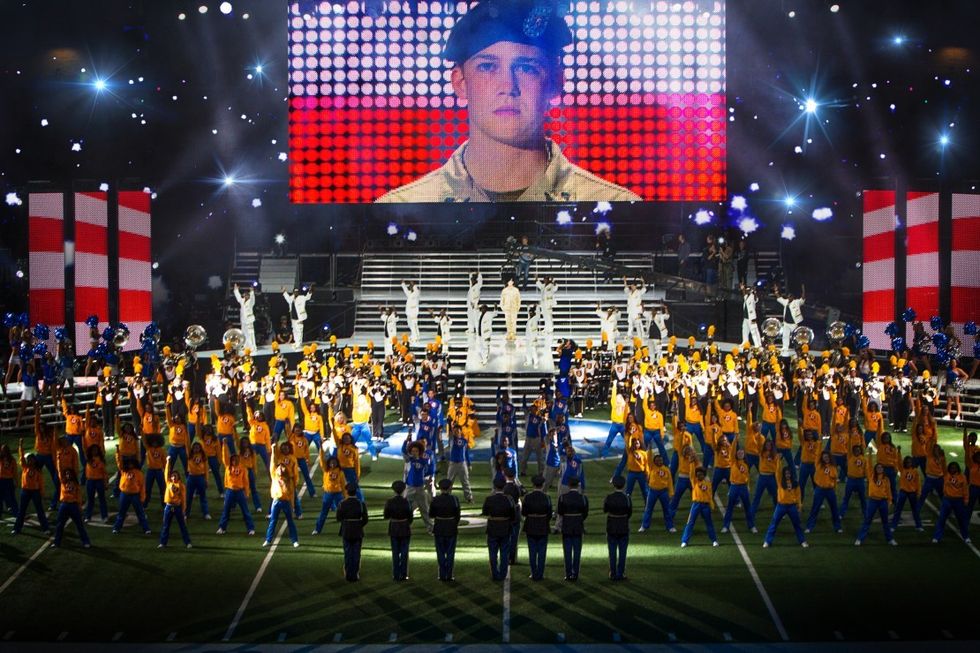
On the subject of writing from perspectives outside of his own, Castelli agreed that it presents challenges that start with "...recognizing one's limitations as a writer when you're writing through people that are very different from you." He suggested that using an expert advisor could help in these situations; in this case they had a military advisor who was "a great reality check." Admitting that he wouldn't have a clue about how to deal with Iraqi insurgents, Castelli said that the military advisor was not only useful for ensuring realism in battle scenes. It was also helpful because "this is a group of soldiers that have a certain corporate identity as well as a personal identity. And the corporate identity is very much tied into their being soldiers and the lingo and so on. So working with the advisor was great."
Miller again drew from personal connections when running into questions of cultural context: "One of the characters in Maggie's Plan is Danish...My mother was an Austrian woman who grew up in France, so she had a strange accent. I know that point of view [the European woman] very, very well. The kind of otherness." She noted that the character was intended to be French, but they decided to make her Danish "because it had the least baggage of any of the accents. You haven't seen that many Danes. And Julianne Moore was very funny. It was an accent she could do and make it funny."
"God knows how productive you're gonna be, but you're trying the whole time.' -Mike Mills
Organize your distractions
When it came to discussing the simple nuts and bolts of getting up every morning and writing, they were split. Mills has a four-year-old son, but before he was born, Mills would use "lots of caffeine. I have so much doubt about what I'm doing. Caffeine is not just to get my brain going but my sense of hope. Which is my biggest problem is sustaining the suspension of my own disbelief. I'm a worker dog. All day. 9-6. God knows how productive you're gonna be, but you're trying the whole time."
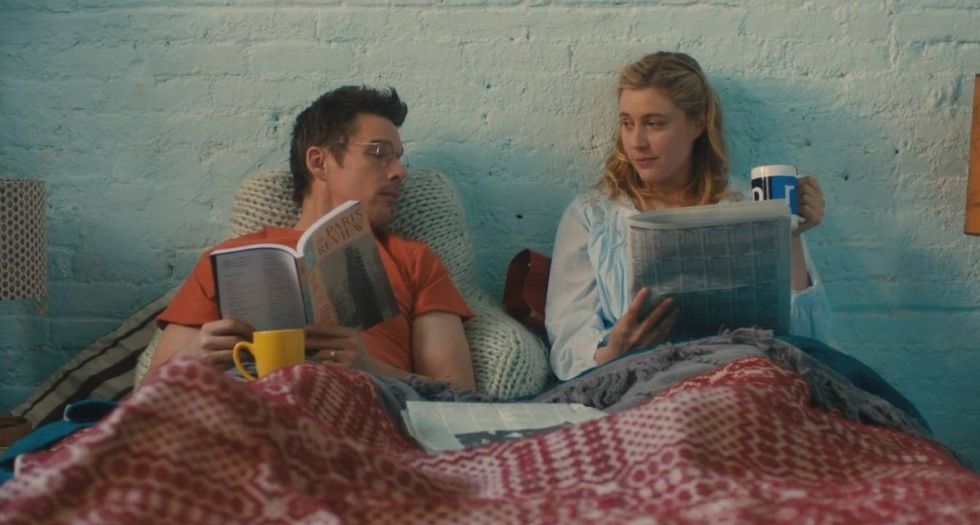
Castelli is also a lover of caffeine but offered his own strategy: "One thing I do is try to organize my distractions. I have two piles of books by my desk. One pile is books that have everything to do with what I'm working on: military memoirs, Iraq war books, even fiction like The Red Badge of Courage." He explained that the other pile of books has nothing to do with his current projects: "A 19th Century French novel, poems. I find that it's nice to reach for one or the other if you're getting distracted. Either you're reading something that might inspire your script, or at the very least you won't be surfing the web and watching cat videos." We can all relate to that.

